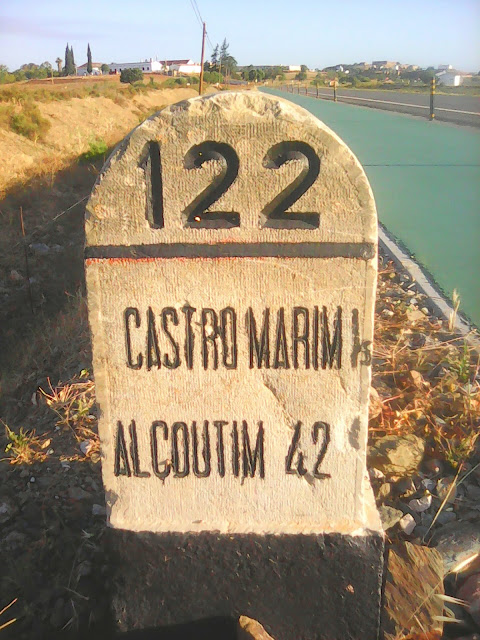"Rediscovering the charm" From Aljezur to Alcoutim
The charm is still there
The idea behind his thinking is that many people due to the present circumstances will be holidaying in their own country this year. Foreigners, he said, visit the country on holiday, and they know their mission having read beforehand and selected the places they wish to visit.
This is when we suddenly realise that we haven’t known or visited some of these sites for many years, many, many years, which is unforgivable.Portugal is the "It" destination. And it is not just Lisbon, Porto or the Algarve that conquers the heart of travelers: it is from north to south, from the interior to the coast, through the islands.Like the Portuguese we too should appreciate what is there.
There is absolutely no doubt that it is one of the best destinations in the world for the reasons we all know.
It is not just about an architectural, monumental or cultural heritage either.It is about holding on to the wealthy gastronomic legacy that Portuguese families have passed down through generations.Now more than ever is the chance for chefs, owners and managers in the hospitality sector to look deep into those historical vaults and recover what may have been forgotten but not lost.
If the Portuguese economy is to survive, the hospitality industry is there to help it.In the 25 years that I have holidayed and then decided to make this wonderful country my home I have seen vast changes across the spectrum.
After decades of obsessing over French and Italian cooking, up and coming Portuguese chefs were finally catching onto the global trend of gastronomic realisation: valuing the indigenous ingredients, techniques, and recipes of their own country with the same reverence given to Escoffier for most of the previous century.Each chef has his own vision, his way of interpreting local flavours and ingredients, and makes restaurants richer and more diverse. Each one that gets lost along the way [with the closing of restaurants] makes the situation weaker.
By virtue of a growing international appreciation in recent years, a movement to rescue traditional flavours was gaining momentum and then..... coronavirus came. Full stop.Rewind,re-work,restart.Traditions must be nurtured and innovative ways of giving them a new lease of life must be found.
much loved ingredients like salicornia (marsh samphire) moura chouriça (blood sausage) and forgotten delicacies such as Abrótea (fork beard fish)should appear back on restaurant plates.Ancient techniques that still continue to thrive should come to the fore,escabeche,peixe alimado( a method of tempering fish,usually mackerel with lemon salt and olive oil).These are cooking methods that produce a blend of flavours that is evocative of Algarvian food culture.
As is the case for every other country facing the pandemic, projections for the local economy (especially those so dependent on tourism) in the wake of COVID-19 are not good — and the sting is particularly sharp for the hospitality industry, which may never fully recover. For Portugal, the most lasting damage might be to the cuisine itself. With so much of the status of Portuguese food hinging on foreign interest, local chefs and restaurateurs should be concerned that the sharp downfall in tourism could be a huge blow to the food identity of Portugal — and the entire food chain so recently created to support it.
The East Algarve has a landscape of rolling hills and valleys, dotted with olive, carob, almond, fig, and orange trees and a formidable coastline overlooking the Atlantic. It comes as no surprise then that the Algarve’s cuisine has developed in two directions. An impressive variety of dishes using fish and shellfish on the one side, and a varied assortment of meat and game dishes on the other.
Outside culinary influences in the Algarve are few, and so traditional home cooking has taken on a vital significance, with recipes passed down through families and the ages. Odd really, as it was Portugal who first brought ingredients like pepper, coriander, ginger, curry, saffron and paprika to Europe, not to mention tea, rice, coffee, peanuts, peppers, tomatoes and potatoes.
Those foreign influences that did manage to leave their mark on the dinner table include the Goths who introduced stews to the nation – which today constitute a major part of the local diet. More importantly the Moorish occupation of the Algarve was to give the area its own regional flavour – not only in the interesting variety of confectioneries, but also with “Xarém”, a distinctive dish (above) made with corn meal and shellfish.
Portugal is a country of immense diversity and limitless holiday possibilities.
People are drawn to Portugal for its glorious climate and stunning beaches, but there is so much more to discover within this fascinating country.On foot, by bike or in a car, whether its towns to visit,beaches to discover,countryside to explore,new dishes to experiment with, Casa Rosada invites you to rediscover all the charm that is Portugal.





Comments
Post a Comment